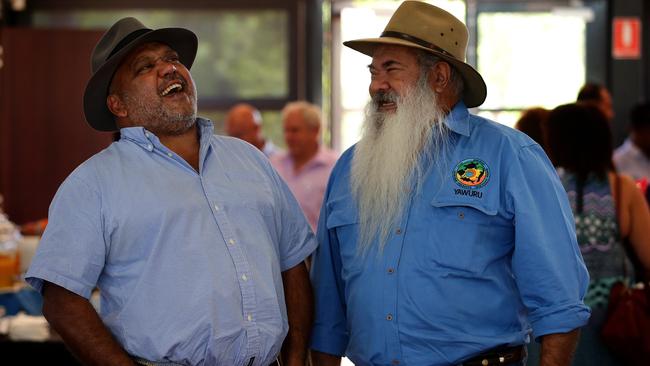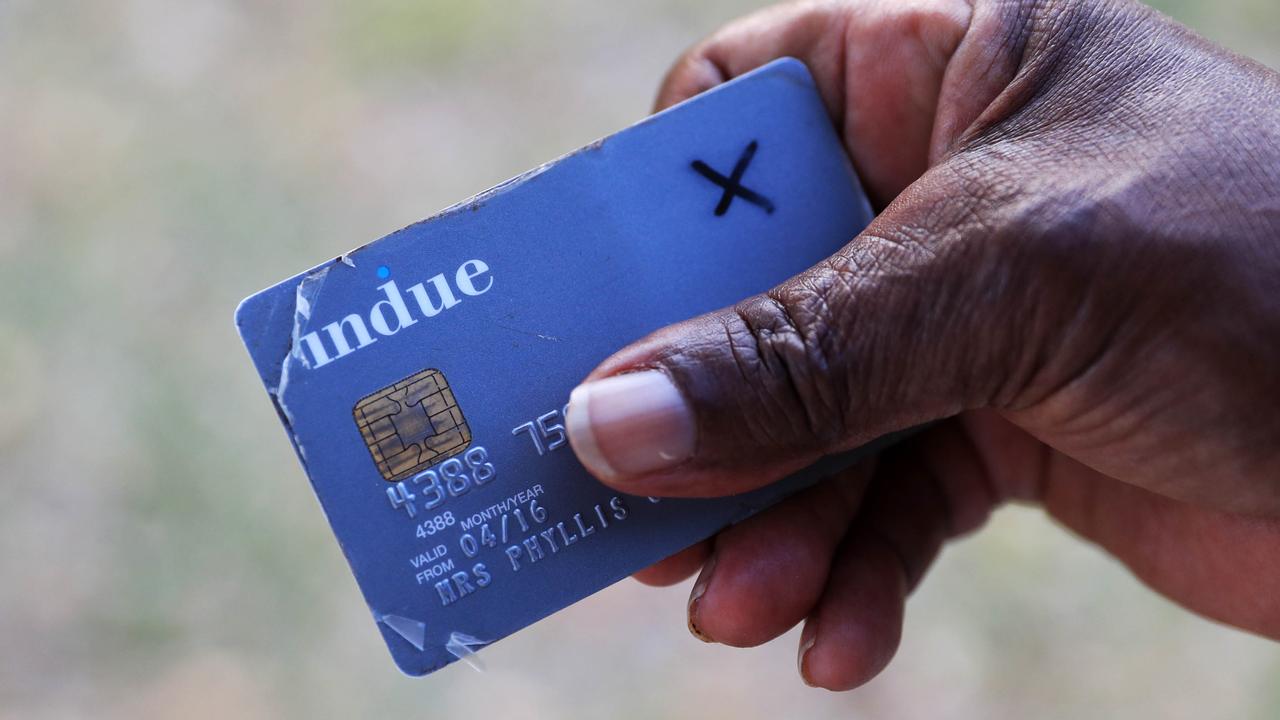Leaders unite to finish the land rights battle
Aboriginal leaders nationally have pledged to forge a new path to lift their people out of poverty and dependence.

Aboriginal leaders from across the country have pledged to forge a new path to lift their people out of poverty and dependence, placing property rights at the centre of a national empowerment agenda that would shuck off the bureaucratic constraints threatening to reverse the gains of land rights and native title.
A historic meeting of more than 40 indigenous leaders in Broome yesterday heard that the enactment of land rights and native title legislation represented the “high point” of Aboriginal rights in recent decades, with those rights relentlessly undermined ever since by policies that had failed to afford indigenous people a true stake in policy and enterprise.
The roundtable was notable for its close co-operation between political warriors from the land rights era and conservative figures, with a remarkable level of agreement between the Left and the Right.
Reconciliation icon Patrick Dodson, hosting the event on Yawuru land, said the fight for true control over property and local economies was the “common backbone” of today’s Aboriginal rights movement.
“Many of the gains that we thought we’d made ... are now being undermined and dissipated,” Mr Dodson said.
“We have a lot more in common than we have that divides us.
“None of us have got the silver bullet or the single answer, but we’re all searching for the best interests for the indigenous peoples, not just our own groups, but across Australia.”
The meeting heard excessive regulation, crippling development costs, inequitable systems of compensation and legislative amendments introduced by successive governments had undermined land rights and native title, denying Aboriginal people the ability to exercise the property rights they had fought so hard to gain.
In indigenous communities across the country, attempts at establishing private housing, commercial development and corporate enterprise were being stymied by legislative, bureaucratic and economic barriers that had prevented Aboriginal people from fully utilising their land.
The Indigenous Leaders Roundtable was instigated by Aboriginal and Torres Strait Islander Social Justice Commissioner Mick Gooda and Human Rights Commissioner Tim Wilson, who initially expected a small gathering. The urgency of the battle for property rights attracted unprecedented interest from across the country, however.
“Native title is only the starting point for our people in reclaiming land,” Mr Gooda said. “The next step is being able to freely exercise our rights to promote economic development and build housing to the advantage of our communities.”
He said the gathering sought to challenge the inequitable conditions placed on the development of indigenous land.
“It’s about understanding what are those barriers, what are those extra layers of regulation that hinder people in using their assets and participating in economic development,” he said.
Yesterday’s meeting followed a tour Mr Wilson took last year in which property rights emerged overwhelmingly as a key issue concerning indigenous people.
“Property rights are actually the forgotten human right,” Mr Wilson said. “Without property rights, you don’t get security, you don’t get people being able to materialise the efforts of their labour, and in the end, without property rights you simply don’t have economic development.
“The feedback from indigenous leaders has been incredibly strong: they know the challenges they face, and they know the human experience or the consequences of what happens when you can’t use your property to its full legal extent.”
The roundtable was attended by more than 40 indigenous leaders from across the country, including Cape York leader Noel Pearson, Northern Land Council chief executive Joe Morrison, chief executive of the Aboriginal charitable trust KRED Enterprises Wayne Bergmann, North Australian Land and Sea Management Alliance chief executive Melissa George, Carpentaria Land Council director Murrandoo Yanner, National Native Title Tribunal president Raelene Webb and North Australia Land and Sea Management Alliance chairman Peter Yu. Mr Pearson said the initiation of the roundtable by Mr Gooda and Mr Wilson had “brought a really fresh angle” to discussions of economic development that were often divided along ideological lines.
“We’ve reached a stage where a couple of things are converging — we’re moving from a land rights claim phase to a land rights use phase where people are grappling with how do we make our land contribute to our development,” he said.
Broome-based Cara Peek, 35, a native title solicitor and director of the Nyamba Buru Yawuru Board, said property rights were of particular significance to younger indigenous generations.
“You can see that the high point was quite some time ago when people believed that Mabo had finally provided that recognition and some power, yet on a day-to-day basis it seems like (indigenous property rights) are being whittled away.”
The roundtable discussed specific examples of the barriers that had stymied indigenous groups after the granting of native title or land rights from carrying out their development plans.
These included plans for private housing blocked by state government regulations, the inability to raise capital following the granting of native title, crippling land tax debts and the inability to secure finance.
In cases where native title was extinguished, compensation was next to impossible for communities to obtain, the meeting heard.



